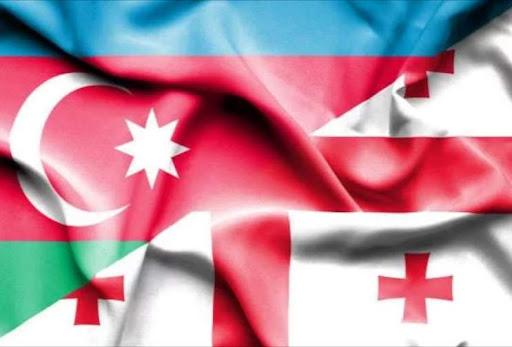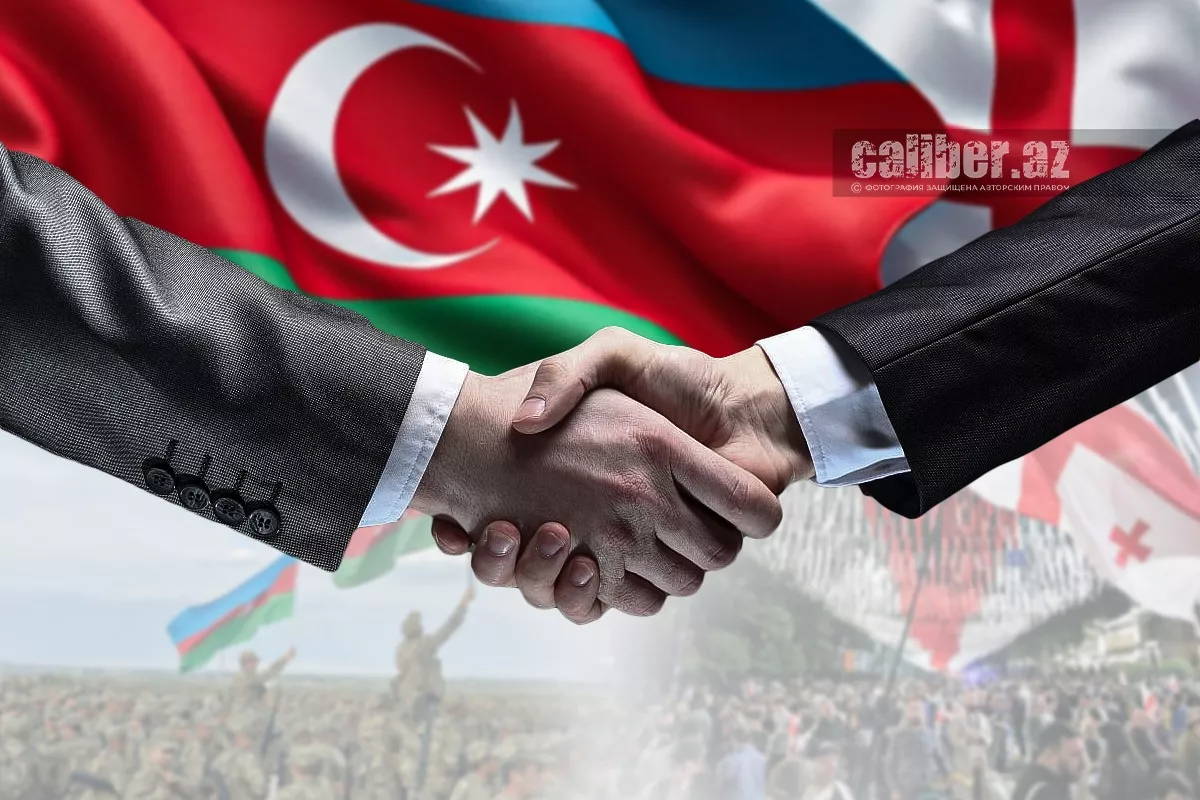"Some people envy the relationship between Azerbaijan and Georgia." MP Givi Mikanadze discusses future of ties
In a recent interview with Caliber.Az, Givi Mikanadze, Chairman of the Georgian delegation to the NATO Parliamentary Assembly and Chairman of the Georgian Parliament Committee on Education, Science, and Youth, discussed the growing strategic partnership between Azerbaijan and Georgia. Reflecting on his December visit to Baku, Mikanadze emphasized the strengthening of bilateral relations, shared economic initiatives, and the potential for future collaboration. He also highlighted Georgia's commitment to European integration, despite challenges, and expressed optimism about the future of the relationship between the two countries in 2025.
— In December, as part of the Georgian delegation, you visited Baku. What were the goals of the visit, and how do you assess the results?
— Before answering this question, I would like to express my deepest condolences on behalf of the Georgian people regarding the plane crash of flight Baku-Grozny of the AZAL airline. Our visit to Baku almost coincided with this tragedy. Upon arriving in Georgia, I, along with my colleagues, visited the Azerbaijani Embassy and, on behalf of our delegation and the Georgian Parliament's Friendship Group with the Azerbaijani Parliament, made an entry in the book of mourning.
As for the visit, it is worth noting that this was the first foreign trip of the new composition of the Georgian parliament deputies. This, in essence, emphasized how important the relationship with our brotherly Azerbaijan is to us. The first point in this regard is the strengthening and deepening of bilateral relations at the parliamentary level, at the level of legislative bodies, what we call "legislative diplomacy," which can help expand the areas of cooperation between our countries even further. We see that there is already positive communication between the speakers of the two parliaments, and special relationships have been established between the friendship groups of our parliaments. Our proposal was that we need to approach specific areas as actively as possible, so that the thematic committees of the two parliaments would begin cooperating with each other. And this should not only be at the level of the parliament speaker but also at the level of the friendship groups, which could coordinate this work and give additional momentum to the process. We emphasized this in our meeting with the Speaker of the Milli Majlis, Sahiba Gafarova, and in our meeting with Arzu Nagiyev, who is the head of the friendship group with the Georgian parliament in the Azerbaijani parliament. This proposal was very well received, and Mrs. Gafarova immediately instructed to draft the agreement, which will be reviewed and signed by both speakers of the parliament in the near future, thus providing an additional legal foundation for the relationship between the two parliaments.

We have invited the Azerbaijani friendship group to Georgia at the beginning of February: specific dates and the visit programme will be discussed this month. I asked that as many committee chairpersons from the Milli Majlis as possible be included in this delegation, so we can introduce them to the committee chairs from the Georgian side, allowing them to discuss common issues and establish personal relationships with each other. This is important because we see that at the government level, at the level of the heads of state, the building of ties between Baku and Tbilisi is progressing very actively.
— How would you characterize the relationship between Azerbaijan and Georgia in 2024? And what does 2025 hold for us?
— The relationship between Azerbaijan and Georgia in 2024 can be characterized as strategically important and harmonious. It has reached a high level of mutual understanding and cooperation based on shared interests, historical ties, and the close friendship between our peoples. Special emphasis has been placed on projects in the fields of economy, infrastructure, and culture, which contribute to strengthening bilateral interaction.
The prospects for 2025 look optimistic. Further development of joint economic initiatives is expected, especially within the framework of transport and energy corridors, such as the Trans-Caspian route. An important aspect also remains the cooperation not only between Azerbaijan and Georgia, but also between Azerbaijan, Georgia, and Turkey, as our countries are economically closely linked. Therefore, there are both bilateral and trilateral formats in which our countries participate.
The preservation of traditional values, the development of cultural dialogue, and the implementation of joint projects will continue to play a key role in strengthening these relations. Currently, the railway from Azerbaijan to Poti and Batumi, for example, is overloaded with cargo and requires additional resources for its further development. The Baku-Tbilisi-Kars railway, as well as the oil and gas pipelines between our countries, are also crucial.
Moreover, we see a growing interest in Azerbaijan and Georgia from China. This year, the cargo flow from China passing through Georgia and Azerbaijan has noticeably increased.

We also aim to develop cooperation with Azerbaijan in the field of maritime cargo transport and are expanding the capabilities of the ports of Batumi and Poti. However, the most significant project is the construction of a deep-water terminal at the port of Anaklia, which will have much greater potential for cargo transportation. Larger vessels will be able to dock there. Therefore, it is crucial that this cooperation is supported at all levels. For instance, an official visit by the Prime Minister of Georgia to Azerbaijan is scheduled for January 17, during which the economic commissions of both countries will meet to discuss specific issues regarding the launch of new projects between our countries in 2025.
From a political standpoint, the peaceful process in the South Caucasus is extremely important for us, as peace is a fundamental condition for developing new global projects and initiatives in the region. Georgia has always been ready to actively participate in this process, ensuring that a peace treaty between Baku and Yerevan is signed as soon as possible. We know that many issues have already been discussed, some are still under negotiation, and there is a high likelihood that a peace treaty will be signed in 2025. We would be very pleased if this happens in Tbilisi.
— What can you say about the West's pressure on the Georgian authorities? What conclusions should be drawn from this? Will the situation change in 2025?
— Unfortunately, we are witnessing a targeted policy of applying double, or even triple, standards towards both our countries. For some reason, laws can be passed in France, Germany, and other countries, but similar and even more liberal laws cannot be passed in Georgia. We see that the West rejects policies that protect family and national values, as well as the cultural and historical traditions of our country. These issues are very important for Georgia and for the majority of its people. However, from the West’s perspective, we should only participate in supporting narratives that are important for a certain minority that does not uphold the traditional values of our society.
We also see that for most Western countries, it was absolutely unacceptable that the ruling party in Georgia, the Georgian Dream, won the election with a landslide, securing 54%, while the opposition party, which passed the 5% threshold and came in second, received only 11%. The difference between the winning party and the opposition is 43%. Even if you take into account the four opposition parties that also entered parliament, they still have 15–16% less than the ruling party.

What does this indicate? It shows that over the 12 years the ruling party has been in power, it has taken steps that are most important and acceptable to the population. And the most important thing is that we have maintained peace: this is the first government since 1991 that has managed to achieve stable peace in Georgia. Therefore, we fully understand the challenges Azerbaijan and the Azerbaijani people face, just as you understand the challenges we are currently encountering. I believe that many countries are watching with interest how Georgia and Azerbaijan are deepening their cooperation in all areas. Some look at this with discontent and envy, but that is their concern. We know that throughout history, there have been empires that conquered half the world and ruled vast territories and peoples, but today you won't find them on the world maps. Yet, our relatively small countries and peoples managed to preserve their independence and survive because we have always focused on the values and special traditions that upheld our identity and uniqueness.
By the way, in several European countries, not only in Hungary and Slovakia but also in Germany, right-wing forces have already made their strong presence felt. These processes are also taking place in Austria and France. So, we see that right-wing forces, which are primarily focused on supporting national priorities and self-identity, are gaining increasing strength and support, while left-liberal forces, which oppose our countries, are losing their power. Therefore, I believe the situation in Europe will soon undergo a radical change. A lot may also change for us with the potential return of Trump to the White House, as his views and approaches share many similarities with the position of the Georgian Dream.
— Will Georgia continue its course of integration with the EU in 2025?
— Despite the clear double standards of the West, there are objective indicators: if we take, for example, Moldova and Bosnia and Herzegovina, with which Brussels has recently started accession talks, and compare them with international indices, based on which the European Union makes its assessments, Georgia is ahead of these countries in terms of reforms and many aspects of the implementation of the EU association agreement. Yet, they were given this opportunity, while our movement towards the European Union is blocked. Thus, we see that an open mechanism of coercion is being used.
Nevertheless, we will continue to do our homework under the association agreement with the European Union. We believe that by the end of 2028, over 90% of Georgia’s commitments will be fulfilled, and there is a strong likelihood that by that time, relations with the West will have been normalized. This will provide an unimpeded opportunity for Georgia to become a full member of the European Union by around 2030.
In conclusion, I would like to wish brotherly Azerbaijan all the best in the coming year. I wish, first and foremost, peace, stability, development, and justice.








